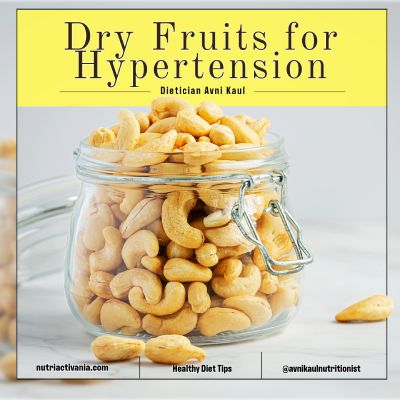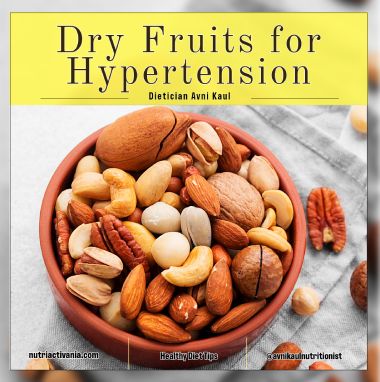Hypertension, or high blood pressure, is a prevalent non-communicable disease affecting millions globally, and India is no exception. With cardiovascular diseases (CVDs) being a major cause of mortality in the country, managing blood pressure becomes crucial for maintaining heart health.
While medications and lifestyle changes play significant roles in managing hypertension, incorporating certain dry fruits into your diet can provide a natural and beneficial approach to controlling blood pressure. Let us explore some amazing dry fruits that can help reduce the symptoms of high blood pressure. Leading dietitian in Delhi and Gurgaon for hypertension, Avni Kaul, shares the benefits of dry fruits in alleviating the symptoms of high blood pressure in this article.
What are some of the amazing dry fruits that could reduce symptoms of high blood pressure?
Almond – Almonds, rich in alpha-tocopherol, magnesium, and heart-healthy fats, are highly beneficial for managing high blood pressure. Their magnesium content helps relax blood vessels, reducing blood pressure, while their plant-based protein and healthy fats contribute to overall cardiovascular health.
Consuming about ¼ cup or 1 ounce of almonds daily can lower triglycerides, LDL cholesterol, and total cholesterol, supporting balanced blood pressure without adding excessive calories. So, don’t forget to pack a few almonds for your daily office tiffin.
Raisins – Raisins are rich in potassium, which helps lower blood pressure. They also provide antioxidant dietary fiber that improves blood vessel flexibility which reduces stiffness. Eating raisins three times a day can effectively lower blood pressure, particularly when compared to similar-calorie snacks. This makes them a beneficial choice for those having high blood pressure, offering a simple way to manage and potentially reduce blood pressure levels. They also help manage weight which is another leading cause of high blood pressure.
Dates – Dates are an excellent choice for managing high blood pressure due to their rich content of potassium and low sodium levels, which help maintain blood pressure within a healthy range. High in fiber, dates aid in controlling blood sugar levels and preventing constipation. The antioxidants in dates may lower triglycerides, reducing heart disease risk. Their combination of nutrients makes them highly effective for cardiovascular health.
Pistachio – Pistachios help lower high blood pressure by providing a rich source of potassium and healthy fats, including monounsaturated and polyunsaturated fats. Their high fiber content and L-arginine, which converts to nitric oxide, aid in dilating blood vessels. Consuming one or two servings daily can reduce LDL cholesterol by 9% to 12% and systolic blood pressure, contributing to overall heart health.
Note: LDL stands for low-density lipoprotein or bad cholesterol
Cashew – Cashew is perhaps the most beloved nut for heart health due to its rich content of healthy fats, antioxidants, and magnesium. These nutrients work synergistically to help lower systolic blood pressure and improve overall heart function. Additionally, cashews are high in fiber, which supports cardiovascular health and aids in blood pressure regulation. Incorporating them regularly into your diet can significantly benefit those managing high blood pressure
Walnuts – Walnuts are an excellent food choice for lowering high blood pressure due to their unique combination of plant-based omega-3 alpha-linolenic acid (ALA), polyunsaturated fats, and bioactive phenolic compounds. These elements help improve cholesterol levels, reduce blood pressure, and provide antioxidants that protect against heart disease and cellular damage. Consuming just a handful of walnuts, rich in protein, fiber, and magnesium, supports overall heart health and weight management.
Prunes – Prunes, the dried version of plums, are effective in lowering high blood pressure due to their rich content of potassium, fiber, and antioxidants. They help decrease both systolic and diastolic blood pressure by reducing oxidative stress and inflammation in the body. Regular consumption of prunes can also enhance cholesterol levels, further contributing to cardiovascular health and overall well-being.
Instead of snacking on a packet of chips, opt for dry fruits like almonds, raisins, dates, pistachios, cashews, walnuts, and prunes. These nutrient-rich choices help manage high blood pressure by providing potassium, magnesium, and healthy fats while reducing cholesterol and inflammation. Incorporating them into your diet supports cardiovascular health and overall well-being.



